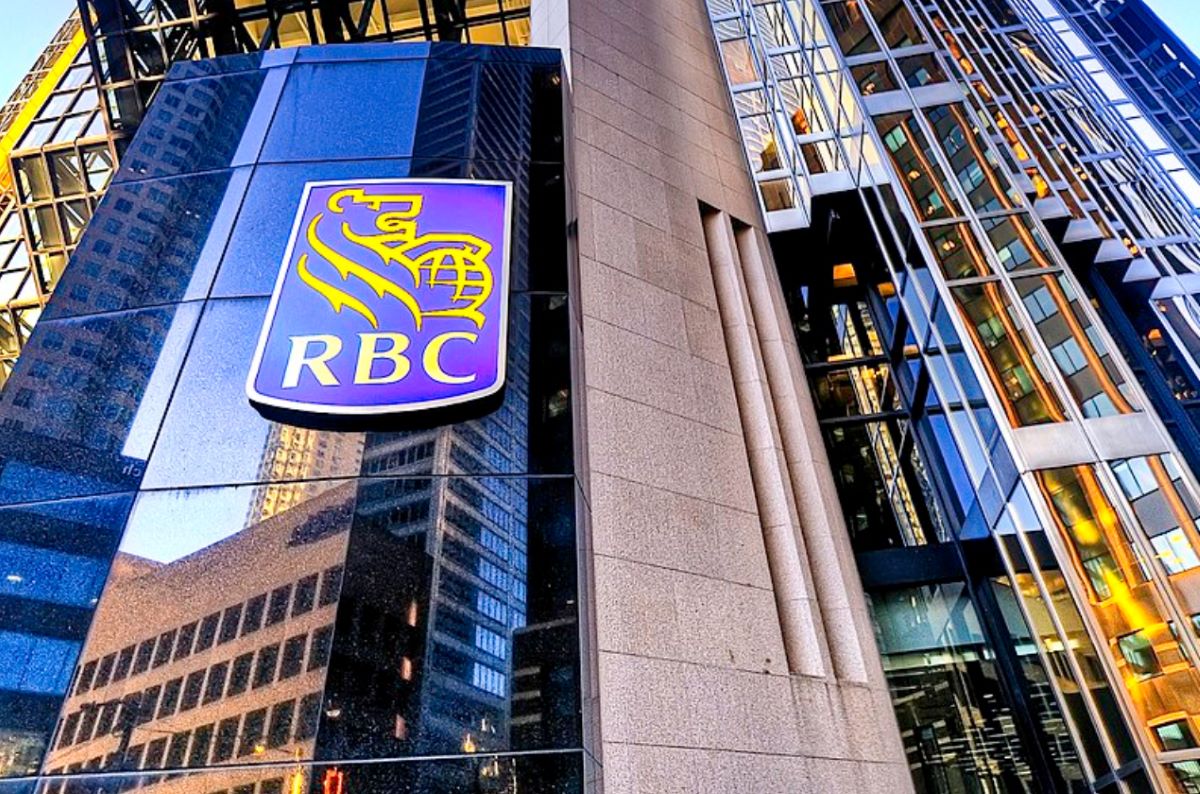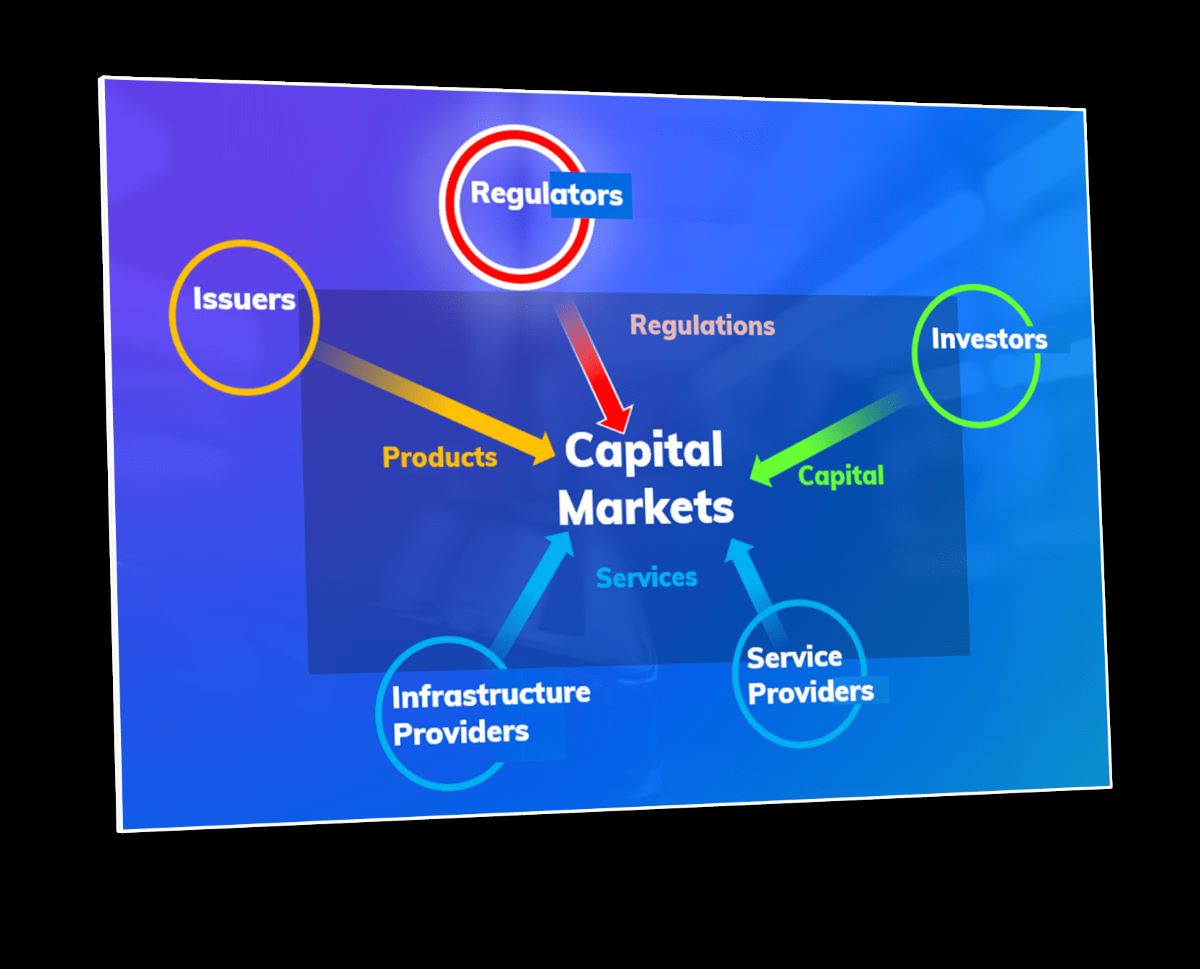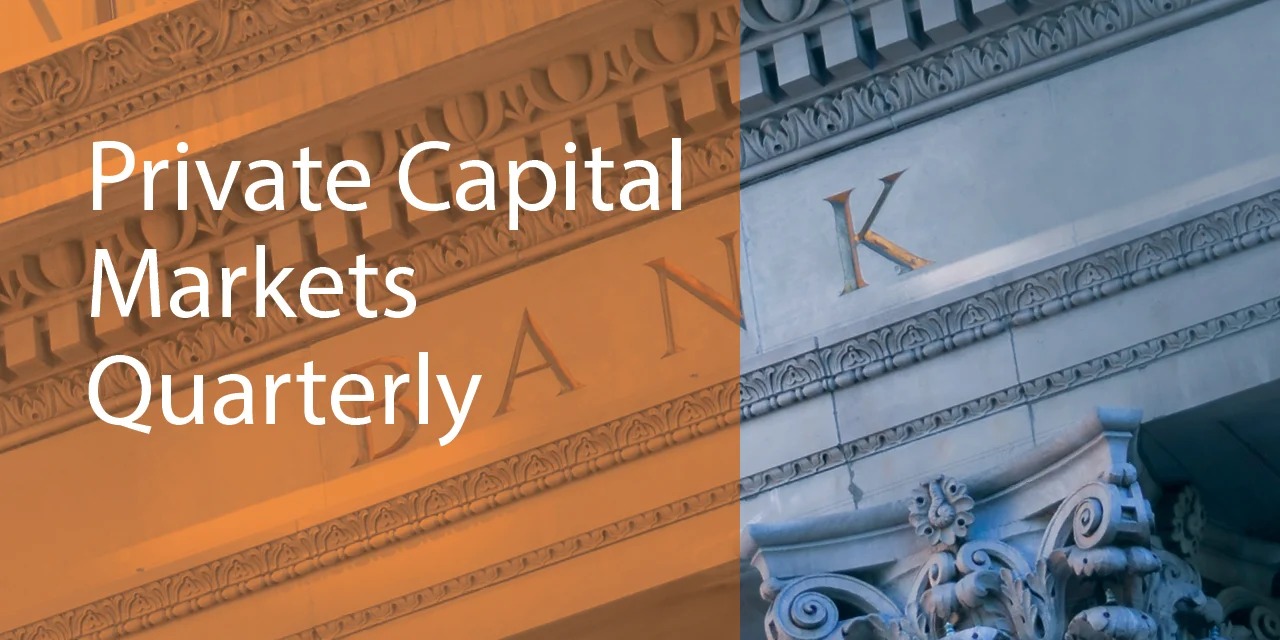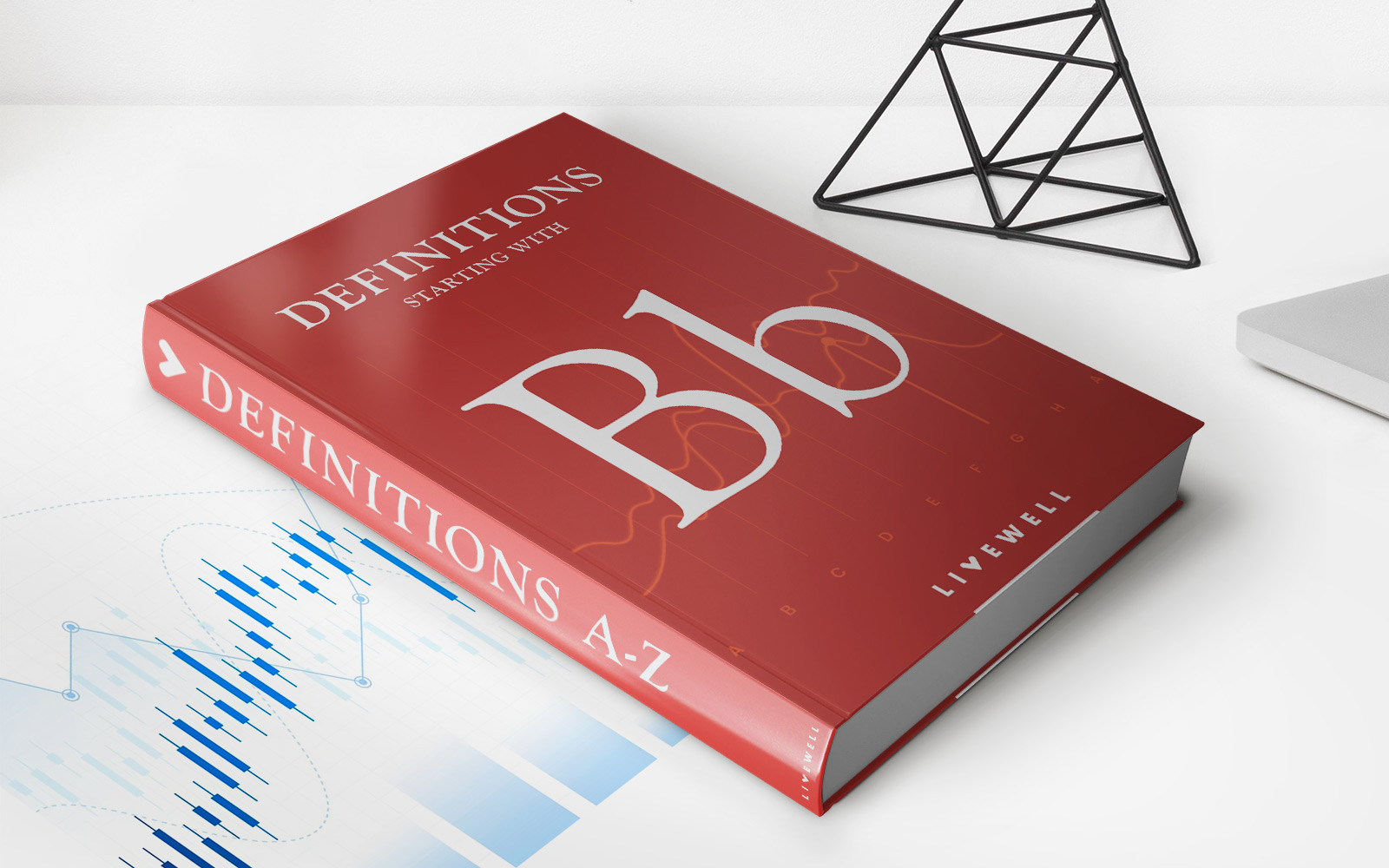

Finance
Why Global Capital Markets Interview Question
Modified: December 30, 2023
Get ready for your finance interview! Learn the top global capital markets interview question to ace your next job interview in the finance industry.
(Many of the links in this article redirect to a specific reviewed product. Your purchase of these products through affiliate links helps to generate commission for LiveWell, at no extra cost. Learn more)
Table of Contents
- Introduction
- Background of Global Capital Markets
- Importance of Interview Questions in Global Capital Markets
- Common Interview Questions in Global Capital Markets
- Technical Knowledge-Based Questions
- Analytical and Problem-Solving Questions
- Behavioral and Situational Questions
- Soft Skills and Communication-Based Questions
- Tips for Preparing for Global Capital Markets Interview Questions
- Conclusion
Introduction
In the world of finance, global capital markets play a crucial role in facilitating the flow of funds between investors and borrowers on a global scale. These markets provide a platform for buying and selling various financial instruments, such as stocks, bonds, derivatives, and currencies. With the increasing complexity and globalization of these markets, it is essential for finance professionals to possess in-depth knowledge and skills to navigate through the challenges they present.
When it comes to securing a job in global capital markets, the interview process is a critical step in the hiring process. Employers in this sector seek candidates who not only possess the necessary technical knowledge but also demonstrate strong analytical abilities, problem-solving skills, and effective communication. To assess these skills, interviewers often pose specific questions designed to gauge candidates’ understanding of financial concepts, their ability to analyze market trends, and their suitability for the role.
Preparing for a global capital markets interview is essential for success in this competitive field. By understanding the common interview questions and being well-prepared with polished responses, candidates can increase their chances of impressing potential employers and landing their dream job.
This article aims to delve into the world of global capital markets interview questions, providing insights into the types of questions candidates can expect, and offering tips for effectively preparing for these interviews.
Background of Global Capital Markets
Global capital markets refer to the interconnected platforms and systems that facilitate the buying and selling of financial securities and assets across countries and continents. These markets play a pivotal role in allocating capital efficiently, enabling businesses, governments, and individuals to raise funds and invest in various ventures and projects.
Historically, global capital markets have evolved significantly, driven by technological advancements, regulatory changes, and the increasing interconnectedness of economies. Today, these markets encompass a wide range of financial instruments, including stocks, bonds, derivatives, commodities, and foreign exchange.
The functioning of global capital markets revolves around the principle of supply and demand. Investors provide the capital by purchasing securities issued by issuers, such as corporations or governments, in the primary market. These securities are then traded in the secondary market, where buyers and sellers interact to determine their prices.
The primary participants in global capital markets include individuals, institutional investors, corporations, banks, securities exchanges, and regulatory bodies. These participants engage in various activities, such as trading, investing, underwriting, and advising, with the goal of maximizing returns and managing risk.
Global capital markets also play a crucial role in promoting economic growth and stability. They provide opportunities for businesses to raise funds for expansion, innovation, and projects. Additionally, these markets enable individuals to invest their savings and grow their wealth over time. Furthermore, global capital markets facilitate the transfer of risk through the buying and selling of insurance and hedging products.
In recent years, the rise of technology has revolutionized global capital markets. Electronic trading platforms, algorithmic trading, and high-frequency trading have increased market efficiency, liquidity, and accessibility. The advent of financial technology (FinTech) has also given rise to new financing models, such as crowdfunding and peer-to-peer lending, which are disrupting traditional banking and finance.
Overall, global capital markets are dynamic, constantly evolving, and influenced by numerous factors, including economic conditions, geopolitical events, regulatory changes, and technological advancements. Understanding the background and context of these markets is crucial for finance professionals aiming to excel in their careers.
Importance of Interview Questions in Global Capital Markets
Interviews play a crucial role in the hiring process for global capital markets positions. They serve as an opportunity for employers to assess the skills, knowledge, and suitability of candidates for roles within this competitive industry. In global capital markets, where precision, analytical thinking, and effective communication are essential, interview questions are specifically designed to gauge a candidate’s expertise and problem-solving abilities.
One of the primary reasons interview questions are important in global capital markets is to evaluate a candidate’s technical knowledge. Finance professionals need to have a solid understanding of financial concepts, such as asset classes, valuation techniques, risk management strategies, and regulatory frameworks. Interview questions can assess a candidate’s proficiency in these areas, ensuring they have the necessary expertise to navigate through complex financial transactions and market dynamics.
Furthermore, interview questions aim to assess a candidate’s analytical and problem-solving skills. In global capital markets, professionals are expected to analyze market trends, evaluate investment opportunities, and provide strategic recommendations. Interview questions may involve case studies or hypothetical scenarios that challenge candidates to think critically and demonstrate their ability to make sound financial decisions.
Effective communication and interpersonal skills are vital in global capital markets, as professionals work closely with clients, colleagues, and stakeholders. Interview questions help assess a candidate’s ability to express complex ideas clearly, collaborate effectively, and build relationships. These skills are essential for negotiating deals, presenting investment strategies, and managing client portfolios.
Interview questions also help employers gauge a candidate’s ability to handle high-pressure situations. Global capital markets are fast-paced and can be unpredictable. Interviewers may ask situational or behavioral questions to assess how candidates react under pressure, their decision-making abilities, and their capacity to handle challenging situations with composure and agility.
Furthermore, interview questions provide insight into a candidate’s cultural fit within the organization. Employers in global capital markets seek candidates who align with the company’s values, mission, and work culture. By asking questions about a candidate’s experiences, aspirations, and motivations, interviewers can evaluate whether the candidate will thrive in the organization and contribute to its success.
In summary, interview questions are crucial in global capital markets as they provide employers with valuable insights into a candidate’s technical knowledge, analytical skills, communication abilities, problem-solving capabilities, and cultural fit. By asking well-crafted questions, employers can make informed hiring decisions and select candidates who are best suited for the challenging and dynamic environment of global capital markets.
Common Interview Questions in Global Capital Markets
During the interview process for a global capital markets position, candidates can expect to be asked a range of questions that assess their knowledge, skills, and suitability for the role. While specific questions may vary depending on the position and company, there are several common interview questions that candidates should prepare for.
1. “Can you explain the concept of risk management in global capital markets?” This question aims to assess a candidate’s understanding of risk management principles, such as identifying and mitigating potential risks associated with investments and financial transactions.
2. “How do you stay updated with the latest financial market trends and news?” This question evaluates a candidate’s ability to engage in continuous learning and stay informed about market trends, regulatory changes, and economic developments.
3. “Tell me about a time when you faced a challenging investment decision. How did you analyze the situation and what was the outcome?” This question assesses a candidate’s problem-solving abilities and their capacity to make informed investment decisions under pressure.
4. “What are the key drivers of global economic growth, and how do they impact capital markets?” This question tests a candidate’s understanding of macroeconomic factors and their ability to analyze the relationship between economic growth and the performance of capital markets.
5. “Can you explain the difference between equity and debt financing?” This question evaluates a candidate’s knowledge of different financing options and their understanding of the advantages and disadvantages of equity and debt instruments.
6. “How do you assess the value of a company’s stock?” This question aims to gauge a candidate’s familiarity with valuation techniques, such as discounted cash flow analysis, multiples valuation, and comparable company analysis.
7. “Tell me about your experience in managing client portfolios and delivering investment strategies.” This question assesses a candidate’s experience in working with clients, their ability to understand client needs, and their track record in delivering successful investment strategies.
8. “How do you handle conflicts of interest in your role as a finance professional?” This question evaluates a candidate’s ethical approach and their ability to navigate potential conflicts of interest in a responsible and transparent manner.
9. “Describe a time when you had to work collaboratively in a team to achieve a common goal in a time-sensitive situation.” This question assesses a candidate’s teamwork and collaboration skills, which are crucial in global capital markets where professionals often work in cross-functional teams.
10. “What do you think are the biggest challenges currently facing global capital markets, and how would you address them?” This question tests a candidate’s critical thinking and problem-solving abilities, as well as their knowledge of the current trends and challenges in the industry.
It is important for candidates to not only prepare answers to these common interview questions but also practice articulating their responses confidently and succinctly. By doing so, candidates can demonstrate their expertise and impress potential employers in the competitive field of global capital markets.
Technical Knowledge-Based Questions
In global capital markets, having a strong foundation of technical knowledge is essential for finance professionals. Employers often ask technical knowledge-based questions during interviews to assess a candidate’s understanding of key financial concepts and their ability to apply that knowledge in practical scenarios.
Some common technical knowledge-based questions that candidates may encounter in global capital markets interviews include:
1. “What is the difference between equity and debt securities?” This question evaluates a candidate’s understanding of the two primary forms of securities in global capital markets. The candidate should be able to explain the characteristics, benefits, and risks associated with equity (i.e., stocks) and debt (i.e., bonds) securities.
2. “Can you describe the process of initial public offerings (IPOs)?” This question assesses a candidate’s knowledge of the process by which a privately held company offers shares to the public for the first time. The candidate should be familiar with the steps involved in an IPO, such as underwriting, prospectus preparation, and the regulatory requirements.
3. “What is the role of credit rating agencies in global capital markets?” This question tests a candidate’s understanding of the importance of credit ratings and the role they play in assessing the creditworthiness of issuers and their securities. The candidate should be able to explain the purpose of credit ratings and the impact they have on investors and issuers.
4. “How do you calculate the cost of equity in a company?” This question evaluates a candidate’s understanding of the methods used to determine the cost of equity, such as the Capital Asset Pricing Model (CAPM) or the Dividend Discount Model (DDM). The candidate should be able to explain the inputs and assumptions involved in these calculations.
5. “What are the key differences between futures and options contracts?” This question assesses a candidate’s knowledge of derivative instruments and their understanding of the distinctions between futures contracts (obligations to buy or sell an asset) and options contracts (rights to buy or sell an asset).
6. “Can you explain the concept of portfolio diversification?” This question tests a candidate’s understanding of the benefits and risks associated with diversifying an investment portfolio. The candidate should be able to explain how diversification can reduce overall risk by spreading investments across different asset classes and industries.
7. “How does monetary policy impact global capital markets?” This question evaluates a candidate’s understanding of the role of central banks in setting interest rates and managing the money supply. The candidate should be able to discuss the effects of monetary policy on inflation, borrowing costs, and investor sentiment.
8. “What are the different types of risk in global capital markets?” This question assesses a candidate’s knowledge of various types of risks, such as market risk, credit risk, liquidity risk, and operational risk. The candidate should be able to explain how these risks can impact investment performance and suggest strategies to mitigate them.
When preparing for technical knowledge-based questions, candidates should review fundamental concepts, formulas, and principles related to global capital markets. It is important to demonstrate a clear and concise understanding of these concepts and showcase how they can be applied to real-world scenarios. By effectively answering these questions, candidates can demonstrate their expertise and ability to navigate the complexities of global capital markets.
Analytical and Problem-Solving Questions
In global capital markets, professionals are frequently challenged with complex problems that require analytical thinking and effective problem-solving skills. During interviews, employers often pose analytical and problem-solving questions to assess a candidate’s ability to analyze financial data, evaluate investment opportunities, and make informed decisions.
Here are some common analytical and problem-solving questions that candidates may encounter during global capital markets interviews:
1. “Given a set of financial statements, how would you analyze a company’s financial performance?” This question tests a candidate’s ability to interpret financial statements, such as the income statement, balance sheet, and cash flow statement, to assess a company’s profitability, liquidity, and solvency.
2. “Can you analyze a stock’s historical performance and provide a recommendation for investing in it?” This question evaluates a candidate’s skills in analyzing historical stock price movements, identifying trends, and conducting fundamental analysis to determine the investment potential of a particular stock.
3. “Imagine you are faced with an investment decision between two mutually exclusive projects. How would you use discounted cash flow analysis to decide which project to pursue?” This question assesses a candidate’s knowledge of capital budgeting techniques, such as net present value (NPV) and internal rate of return (IRR), and their ability to apply these concepts in investment decision-making.
4. “Given a hypothetical scenario of market uncertainty, how would you adjust an investment portfolio to manage risk?” This question tests a candidate’s ability to assess potential risks in the market and adjust investment strategies accordingly, such as diversifying the portfolio, rebalancing asset allocations, or implementing hedging strategies.
5. “Can you describe a situation where you identified a market trend or opportunity and developed an investment strategy to capitalize on it?” This question evaluates a candidate’s ability to identify market trends, conduct research, and develop strategic investment plans based on their analysis.
6. “How would you evaluate the risk-return tradeoff of a particular investment opportunity?” This question assesses a candidate’s understanding of risk and return principles and their ability to evaluate the potential risks associated with an investment alongside its potential for returns.
7. “Imagine a company you are analyzing is facing financial distress. What factors would you consider in determining whether to invest in or divest from the company?” This question tests a candidate’s ability to assess a company’s financial health, consider relevant factors such as debt levels, cash flow, and competitive position, and make informed investment or divestment decisions.
8. “Can you describe a time when you encountered a complex investment problem and developed an innovative solution to address it?” This question assesses a candidate’s problem-solving abilities and their capacity to think outside the box and devise creative solutions to complex investment challenges.
When answering analytical and problem-solving questions, it is essential for candidates to demonstrate their ability to think critically, apply financial concepts, and provide logical and well-supported recommendations. Employers are looking for candidates who can analyze and solve complex problems efficiently, as these skills are highly valuable in the dynamic and competitive world of global capital markets.
Behavioral and Situational Questions
In addition to assessing technical knowledge and analytical skills, employers in global capital markets often use behavioral and situational questions during interviews to evaluate a candidate’s behavior, decision-making abilities, and suitability for the role. These types of questions aim to gauge how a candidate would handle various situations and how they have acted in the past in similar circumstances.
Here are some common behavioral and situational questions that candidates may encounter during global capital markets interviews:
1. “Tell me about a time when you faced a challenging deadline or multiple priorities. How did you manage your time and successfully meet the demands?” This question assesses a candidate’s ability to handle high-pressure situations, prioritize tasks effectively, and meet deadlines in a fast-paced environment.
2. “Describe a situation where you had to make a difficult decision with limited information. How did you approach it and what was the outcome?” This question evaluates a candidate’s decision-making abilities, their ability to gather relevant information, weigh the pros and cons, and make informed decisions in ambiguous or uncertain situations.
3. “Can you share an example of a time when you demonstrated leadership skills in a team setting?” This question assesses a candidate’s leadership skills, their ability to motivate and inspire others, and their experience in leading and collaborating effectively within a team.
4. “Describe a situation where you encountered a conflict or disagreement with a colleague or client. How did you handle it and what was the result?” This question evaluates a candidate’s interpersonal skills and their ability to navigate conflicts professionally, find common ground, and maintain positive relationships.
5. “Imagine you are assigned to a project that requires working with individuals from diverse backgrounds. How would you ensure effective communication and collaboration within the team?” This question assesses a candidate’s ability to work in a diverse and inclusive environment, their communication and adaptability skills, and their capacity to foster collaboration across different perspectives.
6. “Can you describe a time when you had to persuade others to adopt your point of view or idea? How did you approach it and what was the outcome?” This question evaluates a candidate’s communication and influencing skills, their ability to articulate their ideas persuasively, and their track record in generating buy-in from others.
7. “Tell me about a time when you made a mistake or faced a setback. How did you handle it and what did you learn from it?” This question assesses a candidate’s resilience, ability to accept and learn from failures, and their capacity to take responsibility and make improvements based on lessons learned.
8. “Imagine you are presented with conflicting investment recommendations from two team members. How would you evaluate and decide which recommendation to pursue?” This question tests a candidate’s ability to analyze multiple viewpoints, consider relevant factors, and make informed decisions, while considering the team dynamics and the potential impact of their choice.
When responding to behavioral and situational questions, it is crucial for candidates to provide specific examples from their past experiences. By using the STAR method (Situation, Task, Action, Result), candidates can structure their responses effectively, highlighting the challenge they faced, the actions they took, and the outcomes they achieved. This approach helps demonstrate a candidate’s capability to handle real-world situations and provides valuable insights into their behavior and problem-solving abilities.
Soft Skills and Communication-Based Questions
In global capital markets, possessing strong soft skills and effective communication abilities is crucial for success in highly collaborative and client-facing roles. Employers often ask soft skills and communication-based questions during interviews to evaluate a candidate’s interpersonal skills, ability to work well with others, and their capacity to communicate complex financial concepts clearly and confidently.
Here are some common soft skills and communication-based questions that candidates may encounter during global capital markets interviews:
1. “How would you explain a complex financial concept to a client who has limited knowledge in finance?” This question assesses a candidate’s ability to communicate complex ideas in a clear and concise manner, tailoring their communication style to the audience’s level of understanding.
2. “Can you describe a time when you had to deliver a presentation to a group of stakeholders? How did you ensure your message was understood and well-received?” This question evaluates a candidate’s presentation skills, their ability to engage the audience, and their capacity to convey information effectively.
3. “Tell me about a situation where you had to work with a difficult client or colleague. How did you handle the situation and maintain a positive relationship?” This question tests a candidate’s ability to manage challenging relationships, resolve conflicts professionally, and maintain a customer-centric approach in client interactions.
4. “Can you share an example of a time when you successfully built and maintained strong relationships with clients or investors?” This question assesses a candidate’s relationship-building skills, their ability to establish trust, and their track record in providing exceptional client service.
5. “Describe a time when you had to adapt your communication style to work effectively with a team member from a different background.” This question evaluates a candidate’s cultural competency, their ability to collaborate with diverse individuals, and their capacity to bridge communication gaps within a team.
6. “How do you demonstrate attention to detail in your work? Can you provide an example of how your attention to detail has positively impacted a project?” This question assesses a candidate’s attention to detail, their ability to stay organized, and their commitment to producing high-quality work.
7. “Tell me about a time when you had to negotiate a deal or agreement. How did you approach the negotiation, and what was the outcome?” This question tests a candidate’s negotiation skills, their ability to find win-win solutions, and their track record in achieving mutually beneficial outcomes.
8. “Can you describe a situation where you had to work under tight deadlines and deliver high-quality work? How did you manage your time and prioritize tasks?” This question evaluates a candidate’s time management skills, their ability to handle multiple priorities, and their capacity to meet deadlines without compromising quality.
When responding to soft skills and communication-based questions, candidates should provide specific examples from their past experiences that highlight their skills and abilities. It is important to focus on concrete situations, demonstrate effective communication techniques, and emphasize the results achieved by employing strong soft skills in their professional interactions.
Tips for Preparing for Global Capital Markets Interview Questions
Preparing for a global capital markets interview requires comprehensive knowledge, strategic thinking, and effective communication skills. Here are some valuable tips to help you successfully prepare for global capital markets interview questions:
1. Research and Stay Updated: Prior to the interview, thoroughly research the company, its clients, and the current trends and challenges in the global capital markets industry. Stay updated with financial news, regulatory changes, and market developments to showcase your industry knowledge during the interview.
2. Review Technical Concepts: Refresh your understanding of key financial concepts, such as asset classes, valuation methods, risk management strategies, and regulatory frameworks. Review the basics and be prepared to discuss these topics with confidence.
3. Practice Problem-Solving Scenarios: Global capital markets involve complex problem-solving. Practice case studies or hypothetical scenarios that require analytical thinking, strategic decision-making, and the application of financial theories. This will help you sharpen your problem-solving skills and enhance your ability to think critically under pressure.
4. Reflect on Past Experiences: Consider your previous experiences in the world of finance and identify situations that highlight your skills in areas such as teamwork, leadership, client management, and conflict resolution. Prepare specific examples and practice articulating your role, actions, and the outcomes achieved.
5. Develop Strong Communication Skills: Effective communication is vital in global capital markets. Practice articulating complex financial concepts in a clear and concise manner. Enhance your presentation skills by delivering practice presentations and seeking feedback. Polish your interpersonal skills to ensure you can build strong relationships with clients and colleagues.
6. Be Familiar with Industry Jargon: Global capital markets come with specialized terminology. Make sure you are familiar with industry jargon and can confidently use it in your responses. However, be cautious not to overuse jargon to the point of confusion. Strike a balance between demonstrating your knowledge and ensuring clarity in your communication.
7. Prepare Questions for the Interviewer: Research the company and the specific role you are interviewing for. Prepare insightful questions to ask the interviewer that demonstrate your interest, strategic thinking, and understanding of the industry. This will show your enthusiasm and engagement in the interview process.
8. Conduct Mock Interviews: Practice answering a variety of interview questions with a mentor, colleague, or in front of a mirror. Pay attention to your body language, tone of voice, and clarity of expression. Receive feedback and make adjustments to improve your overall presentation.
9. Stay Confident and Authentic: Remember to be yourself during the interview. Stay confident in your abilities and let your passion for global capital markets shine through. Authenticity and genuine enthusiasm can make a positive impression on interviewers.
10. Follow-Up After the Interview: After the interview, send a thank-you note or email to express your appreciation for the opportunity to interview. Use this opportunity to reiterate your interest and highlight any additional qualifications or insights you may have gained during the interview.
By following these tips and dedicating time to prepare, you can enhance your chances of success in global capital markets interviews. Remember to combine your technical knowledge with effective communication, problem-solving skills, and a genuine passion for the industry to impress potential employers and secure your desired position.
Conclusion
Preparing for global capital markets interviews is crucial for anyone looking to excel in the finance industry. By understanding the importance of interview questions and preparing effectively, candidates can boost their chances of success and stand out among the competition.
Global capital markets interview questions span various categories, including technical knowledge, analytical thinking, behavioral assessment, and soft skills. Candidates should be well-versed in financial concepts, market trends, and regulatory frameworks. Additionally, they should be prepared to showcase their problem-solving abilities, communication skills, and adaptability in dynamic situations.
To prepare for a global capital markets interview, it is essential to conduct thorough research on the company and industry, stay updated with market trends, and review technical concepts and valuation methods. Candidates should also reflect on past experiences, practice problem-solving scenarios, and polish their communication skills to effectively convey complex financial ideas to diverse audiences.
By following these tips and approaches, candidates can enter their global capital markets interviews with confidence. It is important to stay authentic, showcase enthusiasm, and demonstrate a commitment to continuous learning and growth in the ever-changing world of finance.
In conclusion, global capital markets interviews can be challenging, but with adequate preparation, candidates can position themselves as strong contenders for coveted roles in this competitive industry. By combining technical knowledge with strong problem-solving abilities, effective communication skills, and a professional demeanor, candidates can impress interviewers and increase their chances of success in the dynamic and fast-paced world of global capital markets.














